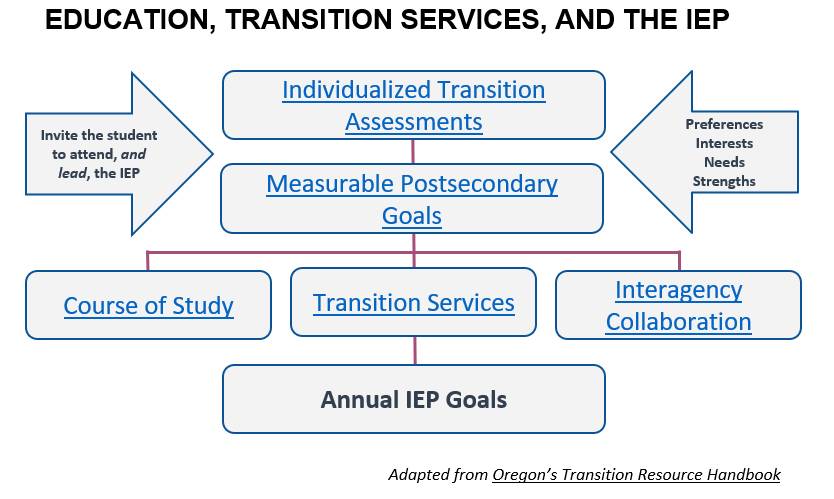Transition planning is a process used to assist students with disabilities to move from school life to adult life. It is a cooperative effort between the school, the student, the family, and community agencies. Transition planning, which is part of the secondary IEP, must begin by the age of 16, and considered by age 14 if appropriate. School teams (which includes the student) must be aware of the educational tools, resources, and opportunities available to help prepare the student to achieve their postsecondary goals. Agency partners can provide school teams with resources and information about supports & services available focused on employment and independent living. Together, school teams and agency partners can collaborate for the shared goal of realizing the student’s postsecondary vision.
Big ideas for transition teams:
- The goal of transition planning is to make a smooth transition to life after high school (or when school services end)
- According to the Individuals with Disabilities Education Act (IDEA), transition planning should begin no later than the IEP that will be in place when the student turns 16 years of age.
- Transition planning can begin sooner, at or before age 14, if deemed appropriate/necessary by the IEP team.
- Transition planning is individualized; based on the student’s strengths, preferences, and interests; and includes opportunities to gain knowledge and skills needed for continuing education, work, and community life.
This component will provide content related to transition services, education, and the IEP. There are interactive tools to define steps in transition planning, and an interactive flow of student services to assist with understanding what supports and services may be available by grade level. Areas covered for this component include setting transition assessments, information on postsecondary IEP goals, courses of study, interagency collaboration, and transition services and their relationship to the overall annual IEP goals. There are interactive resources and learning opportunities to aid in increasing knowledge in this component area.
Intended audience: educators working with students in transition planning, vocational rehabilitation counselors, families of a young adult involved in transition planning, and the student who is transitioning.
Navigation
► Education, Transition Services, and the IEP Introduction
Key Elements
Resources: Education, Transition Services, and the IEP
Research Support: Education, Transition Services, and the IEP

